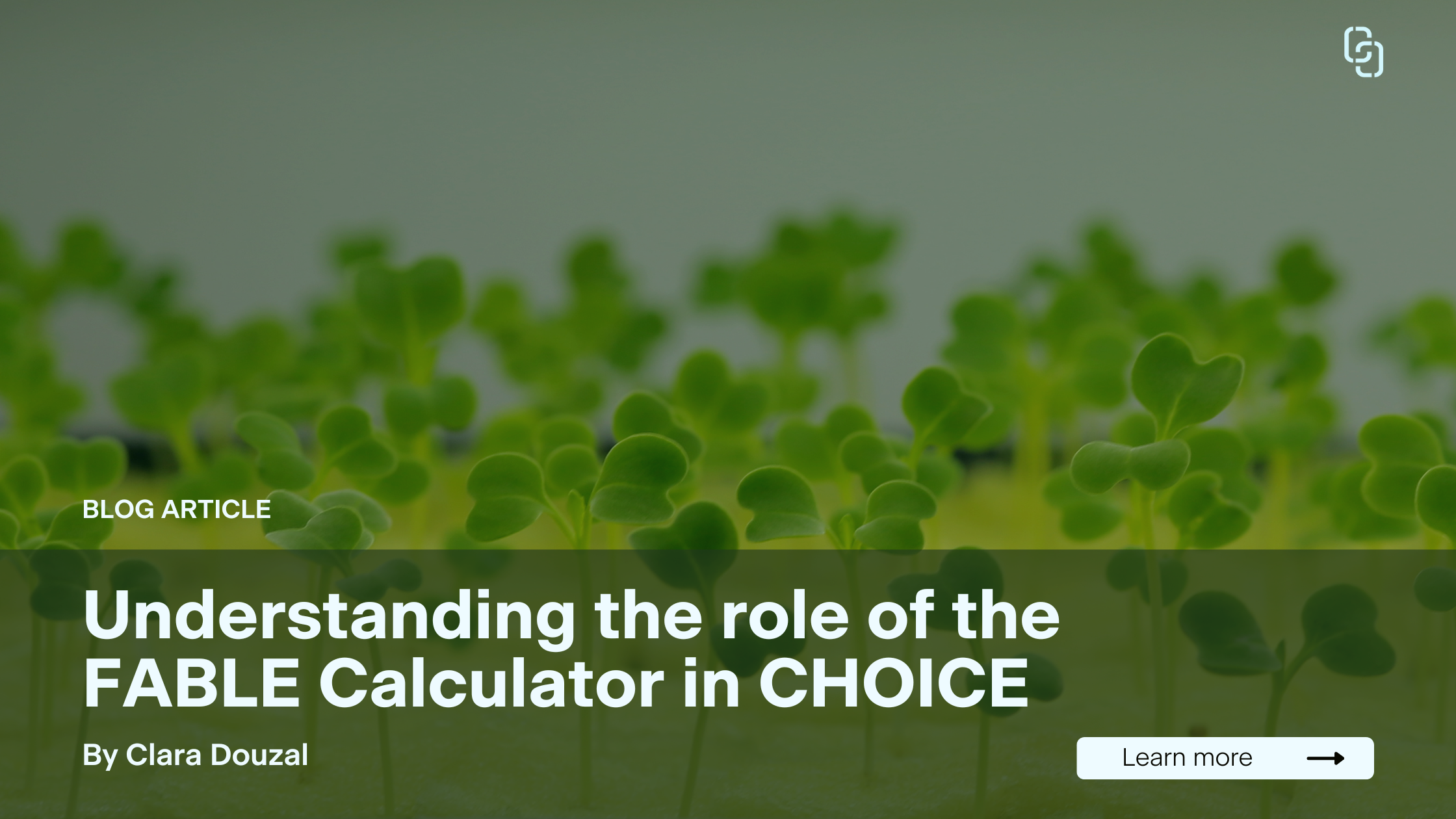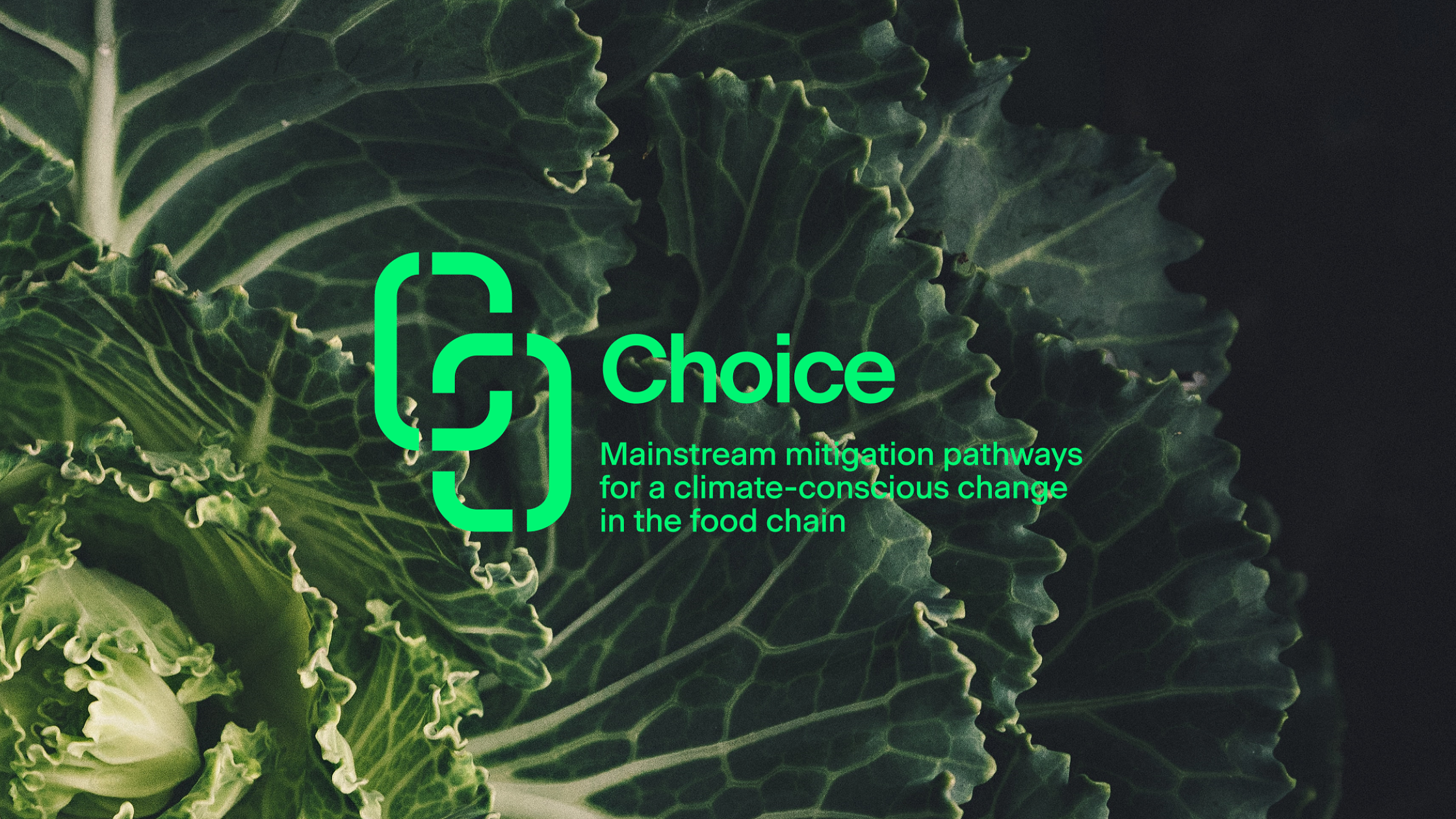
Employing Digital Tools for (Sustainable) Food Mitigation: A CHOICE Project Study
The development of digital tools has revolutionized the management of food systems, offering innovative solutions to mitigate food waste and enhance food security. The CHOICE project has thoroughly examined the current landscape of digital tools and their application in promoting food mitigation measures.
Specifically, a range of digital solutions was explored, from consumer-focused apps that encourage sustainable eating habits to industry-level systems that optimize food supply management, and recorded into a knowledge base accessible as a public wiki. Through this study, the effectiveness of these tools was assessed, drawing on recent studies highlighting the potential of Artificial Intelligence, Machine Learning, and Industry 4.0 technologies in the food sector (Principato et al., 2023; Tancredi, Vignali, & Bottani, 2022).
Additionally, the role of digital tools in dietary assessment and monitoring was considered, which are essential for informing public health strategies (Chen, Grech, & Allman-Farinelli, 2022; Manners et al., 2022). Our review discusses the challenges and opportunities presented by digital tools, including the need for tailored solutions that address the unique requirements of different populations and sectors (Marra, 2022; Pan, Ren, Vos, & Brombacher, 2021).
Study outcomes
The Urgency of Food Mitigation Measures
Modern food systems face immense pressure due to the growing global population and the increasing demand for food, impacting production, supply chains, and waste management practices. The Food and Agriculture Organization of the United Nations (FAO) highlights food waste as a critical issue, with about one-third of all food produced for human consumption lost or wasted globally (FAO, 2019). This represents significant economic loss and contributes to environmental problems, including greenhouse gas emissions and resource overutilization (Gustavsson et al., 2011).
Integrating digital tools into food mitigation strategies presents a transformative opportunity.
These tools, spanning from consumer-oriented applications to complex industrial systems, harness the power of data and connectivity to foster informed decision-making and optimize food system operations (Principato et al., 2023). Digital technologies can significantly reduce food waste, enhance food distribution efficiencies, and promote sustainable consumption behaviors (Tancredi et al., 2022).


Empowering Consumers and Industry with Digital Innovations
At the consumer level, digital applications aim to influence individual behaviors, which significantly contribute to food waste. Tools for dietary assessment and monitoring can promote awareness and encourage sustainable food choices among consumers (Chen et al., 2022). These applications provide personalized feedback, nudging users towards reducing their food waste footprint. In the supply chain and industry sector, digital tools offer sophisticated solutions for tracking, managing, and optimizing food production and distribution. From farm to fork, AI and ML can predict demand, streamline logistics, and reduce overproduction and spoilage (Principato et al., 2023). Digital twin technology and Industry 4.0 innovations enable real-time monitoring and anomaly detection in food plants, ensuring product quality and safety (Tancredi et al., 2022).

Overcoming Challenges and Realizing Potential
At the consumer level, digital applications aim to influence individual behaviors, which significantly contribute to food waste. Tools for dietary assessment and monitoring can promote awareness and encourage sustainable food choices among consumers (Chen et al., 2022). These applications provide personalized feedback, nudging users towards reducing their food waste footprint. In the supply chain and industry sector, digital tools offer sophisticated solutions for tracking, managing, and optimizing food production and distribution. From farm to fork, AI and ML can predict demand, streamline logistics, and reduce overproduction and spoilage (Principato et al., 2023). Digital twin technology and Industry 4.0 innovations enable real-time monitoring and anomaly detection in food plants, ensuring product quality and safety (Tancredi et al., 2022).
Access the Public Wiki
A full list of the identified digital tools from this research is available in a public wiki, which can be accessed here (DOI 10.5281/zenodo.12742263). This work is part of Task 4.1 of the CHOICE project, led by ICCS with the participation of Inoqo, LIBRA, and IIASA partners. It aims to review the most impactful digital tools for food mitigation measures and their role in promoting sustainable food systems.
References
- Principato, L., Marchetti, S., Barbanera, M., Ruini, L., Capoccia, L., Comis, C., & Secondi, L. (2023). Introducing digital tools for sustainable food supply management: Tackling food loss and waste in industrial canteens. Journal of Industrial Ecology, 27(4), 1060–1075.
- Tancredi, G. P., Vignali, G., & Bottani, E. (2022). Integration of digital twin, machine-learning and industry 4.0 tools for anomaly detection: An application to a food plant. Sensors, 22(11), 4143.
- Chen, J., Grech, A., & Allman-Farinelli, M. (2022). Using popular foods consumed to inform development of digital tools for dietary assessment and monitoring. Nutrients, 14(22), 4822.
- Manners, R., Adewopo, J., Niyibituronsa, M., Remans, R., Ghosh, A., Schut, M., & Fraenzel, A. (2022). Leveraging digital tools and crowdsourcing approaches to generate high-frequency data for diet quality monitoring at population scale in Rwanda. Frontiers in Sustainable Food Systems, 5, 804821.
- Marra, F. (2022). Food products and digital tools: The unexpected interconnections. Frontiers in Nutrition, 9, 847038.
- Pan, S., Ren, X., Vos, S., & Brombacher, A. (2021). Digital tools to promote healthy eating for working-age individuals: A scoping review. The Ninth International Symposium of Chinese CHI, 1–8.
- Gustavsson, J., Cederberg, C., Sonesson, U., Van Otterdijk, R., & Meybeck, A. (2011). Global food losses and food waste. FAO Rome.
- FAO. (2019). The state of food and agriculture 2019: Moving forward on food loss and waste reduction. UN.




